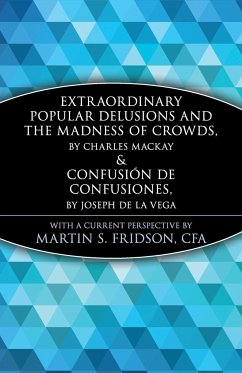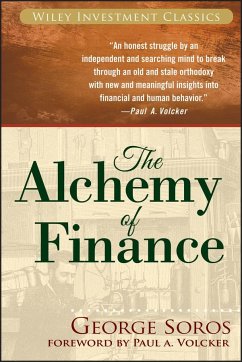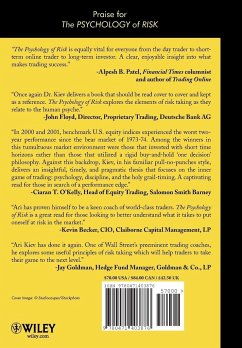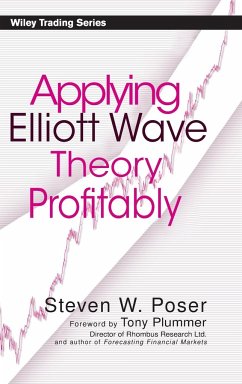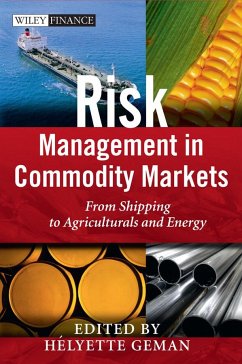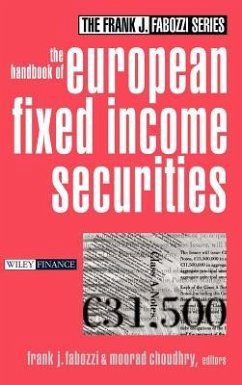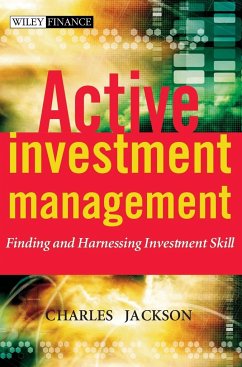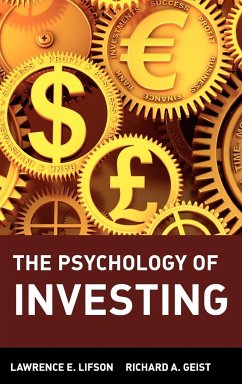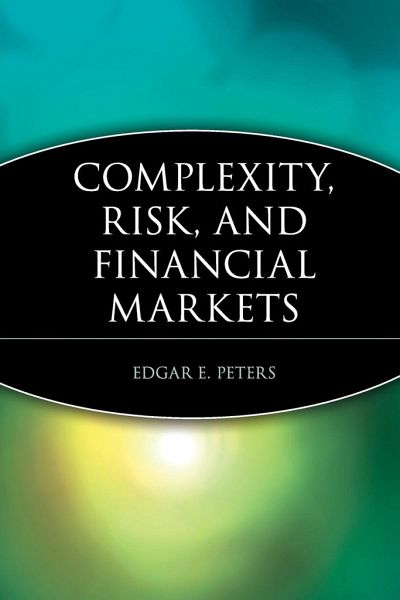
Complexity, Risk, and Financial Markets
Versandkostenfrei!
Versandfertig in über 4 Wochen
23,99 €
inkl. MwSt.
Weitere Ausgaben:

PAYBACK Punkte
12 °P sammeln!
Die Komplexitätstheorie besagt, daß Prozesse mit einer großen Anzahl scheinbar unabhängiger Faktoren, wie z. B. freie Märkte, sich spontan zu einem kohärenten System zusammenschließen können. Auf der Grundlage wissenschaftstheoretischer und wirtschaftswissenschaftlicher Aspekte demonstriert der Autor, wie sich das Zufallsprinzip und die Ungewißheit der Komplexitätstheorie auf die Finanzmärkte anwenden lassen. Verständlich und spannend geschrieben, bietet dieses Buch einen grundlegenden Einblick, wie freie Märkte funktionieren, indem sie ständig neue komplexe Systeme schaffen. Peters untermauert seine Aussagen mit einer Fülle von praktischen Beispielen. "A fascinating account of one of today's great paradoxes: The irreducible uncertainty that lies at the heartof social and economic order. A perfectly efficient market could not possibly work. Uncertainty reduces risk. Ed Peters takes our most cherished beliefs, tuns them upside down, and convinces us that they're much better that way."--Ian Stewart, author of Does God Play Dice and columnist for Scientific American
A groundbreaking look at complexity theory and its implications in the world of finance
Complexity theory tells us that processes with a large number of seemingly independent agents-such as free markets-can spontaneously organize themselves into a coherent system. In this fascinating book, Edgar Peters brings together scientific theory, the artistic process, and economics to show how the randomness and uncertainty of complexity theory can be applied to financial markets. Written in an engaging and accessible style, this is a thoughtful, conceptual look at the way free markets are, by their nature, continually evolving complex systems. Expanding on previous explorations of chaos theory, Peters draws on real-life examples ranging from the Asian crisis to America's love of conspiracy to show that complexity and randomness are necessary for the free markets to operate in a competitive manner.
Complexity theory tells us that processes with a large number of seemingly independent agents-such as free markets-can spontaneously organize themselves into a coherent system. In this fascinating book, Edgar Peters brings together scientific theory, the artistic process, and economics to show how the randomness and uncertainty of complexity theory can be applied to financial markets. Written in an engaging and accessible style, this is a thoughtful, conceptual look at the way free markets are, by their nature, continually evolving complex systems. Expanding on previous explorations of chaos theory, Peters draws on real-life examples ranging from the Asian crisis to America's love of conspiracy to show that complexity and randomness are necessary for the free markets to operate in a competitive manner.





